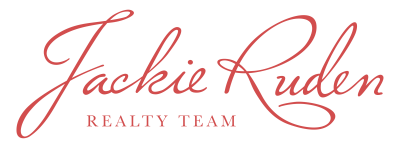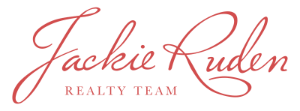Buying a house in a planned development means that you will most likely be part of a homeowners’’ association (HOA). You pay a monthly fee that is meant to assist in the upkeep of the community, and you are required to follow certain rules. The homeowners’’ association uses the money to take care of the fitness rooms, parking garages, clubhouses, swimming pools, security gates, and building exteriors. The homeowner association also sets out rules that govern the community members. Some of the rules that you may be required to follow deal with pets and structures on the property.
As a homeowner, it is necessary that you are well informed about the community, the requirements, and the fees involved. All HOAs are not created equally, so it’s important to investigate thoroughly before choosing to purchase a home in the community. There may be restrictions on paint colors, satellite height, pet size, or having a garden on your property. You’ll need to weigh the pros and cons before committing to living there long-term.
What is a Homeowners’ Association?
 The developers of the planned community incorporate the homeowners’ association before the houses are sold. Some of the home owners may volunteer to be on the board of directors of the homeowners’ association. The board of directors is responsible for enforcing the community covenants.
The developers of the planned community incorporate the homeowners’ association before the houses are sold. Some of the home owners may volunteer to be on the board of directors of the homeowners’ association. The board of directors is responsible for enforcing the community covenants.
The board of directors may hire a property management company and place them in charge of maintaining the community property. The board is responsible for making decisions that impact the homeowners’ association such as the expectations and rules of the community.
With the increase in popularity of master planned communities, the use of a homeowners’ association is more commonplace than ever. Many home owners expect to pay a fee and appreciate the rules that keep the community safe and appealing. The fees may depend on the amenities offered within the planned community.
Homeowners’ Association Management
Homeowner’s association management deals with maintenance of the community for the residents. The management provides the home owners with a suitable environment to grow property values. The homeowners’ association hires home association management to help with the collections. The homeowner’s management is responsible for running the day to day activities of the community.
A homeowner’s association management works with the board of directors to ensure that the community is well maintained. The management ensures that they meet the needs of the home owners. The homeowners’ association has a management team that is experienced in unique challenges and works within a specific budget they are given. Part of their responsibility is in making the community a pleasant place to live.
Common Homeowners’ Association Rules
When you become a member of the homeowner’s association, there are specific rules by which you must abide. The set of rules and expectations vary from community to community, but there are rules that seem to be common among the majority.
House Colors: While you may think that a home owner should be able to paint their home whichever colors suit them, you may appreciate this rule being in place when a neighbor tries to paint their home a combination of hot pink, lime green, and purple. Should you choose to paint your home after the initial construction, you may need to pass the color pallet by the homeowners’ association for approval.
Parking: You may not be able to park on the street or work on your vehicle in the driveway. The homeowners’ association may place restrictions on types of cars, speed limits, and registration requirements.
Pets: There may be rules in place that govern the sizes and types of pets that are allowed within the community. Since pets are often significant parts of a household, it makes sense that there be some sort of expectations where they are concerned. If you have pets or plan on getting a specific type of pet, make sure the community allows them.
 Quiet Time: Many communities recognize a quiet time when you could get fined for noise violations if you disturb other residents.
Quiet Time: Many communities recognize a quiet time when you could get fined for noise violations if you disturb other residents.
Rentals: If you plan to purchase a home and offer it to renters, you’ll need to make sure that renting is allowed and what you’re responsible for when it comes to the behavior of the renters. In most cases, the renters are expected to follow all the rules of the HOA, and you may be the one fined if they don’t.
Lawn Upkeep: One of the main objectives of a homeowners’ association is to maintain or increase property values for the community. Part of keeping this appealing involves the upkeep of lawns and proper landscaping. There may be rules on the length of the grass, mowing schedules, and watering schedules.
Household Members: If you’re used to having people stay in your home for lengthy periods of time, this rule will be of importance. Many communities have restrictions on the number of people allowed to reside in each home. While this may be dependent on the size of the home, it’s still worth noting in case you plan to have long-term house guests.
Home Additions: There may be specific requirements when it comes to things like outside buildings, fences, pools, and spas. Additionally, you may need to get prior approval before creating an extra room on your home or building a deck. Holiday decorations also fall into this category. Some HOAs have strict rules against certain outdoor decorations and flags being flown.
Common Areas: There may be rules in place that govern the use of common areas such as pools, tennis courts, club houses, and fitness areas. For example, you may not be allowed to bring your own food or drink in common areas.
Can a Homeowners’ Association Fine You?
Yes, a homeowners’ association can, and will, fine you when you break the rules. The amount of the fines and the specifics will be outlined in the contract you sign when you move in and join the association.
There may be a fine that is based on the number of days you’ve broken a rule or a one-time fine. For example, if all holiday decorations must be removed by a certain day, a fine may be imposed for each day that the decorations remain.
Many associations will issue a warning and allow a small period of time to resolve the issue, but this isn’t always the case and could vary depending on the violation. However, some associations have included a notice grace period in which you can set up a hearing to dispute the alleged violation.
You can be fined for things like installation of a satellite dish, painting a house in color not approved by the homeowners’ association, improper maintenance of the lawn.
If you choose not to pay the fine that’s been handed down, interest may be added to the original fine. The HOA can take you to small claims court to sue for the amount owed.
Average Homeowners’ Association Fees or Dues
 Each HOA sets their fee amount and schedule based on community standards, amenities, and maintenance needs. Fees can be anywhere from $200.00 to $1,000 and higher. Fees may be paid monthly, quarterly, or annually, depending on the HOA.
Each HOA sets their fee amount and schedule based on community standards, amenities, and maintenance needs. Fees can be anywhere from $200.00 to $1,000 and higher. Fees may be paid monthly, quarterly, or annually, depending on the HOA.
Make sure that you know about all the fees you will be required to pay before joining the homeowners’ association. There is homeowners’ association research fund, which comprises of two parts. One part of the monthly fees go to the monthly expenses and the other part is put in the reserve fund. The reserve fund is meant for long-term repairs like exterior paint, plumbing, and roof repairs. The reserve fund also covers vandals, natural disasters, or wear and tear
Can I Be Forced to Join a Homeowners’ Association?
Whether you can be forced to join a community HOA depends on when the HOA was formed. If you purchased a home in a community that decides to establish an HOA after the community is formed, you are not required to join the association.
If you’re planning to purchase a home in an established community that organized their HOA before homes were built, you’ll be required to join the HOA and abide by their rules.
Benefits of Joining a Homeowners’ Association
While you may not appreciate the dues and some of the expectations, an HOA can be beneficial.
Common Areas: Think of the money you could save on gym memberships, pool installations, and parties. The use of common areas like fitness rooms, event centers, party rooms, conference areas, pools, and playgrounds can save you the money it would cost for you to place these yourself.
Home Value: Living in an area where the upkeep of homes and properties is strictly managed can be a plus when it comes to increasing the value of your home.
Maintenance Costs: Since you are paying an HOA fee, the cost of regular maintenance and landscaping is split among everyone and saves money across the board.
Your real estate agent is the best source of information about the local community and real estate topics. Give Jackie Ruden Realty Team a call today at 435-272-7710 to learn more about local areas, discuss selling a house, or tour available homes for sale.







